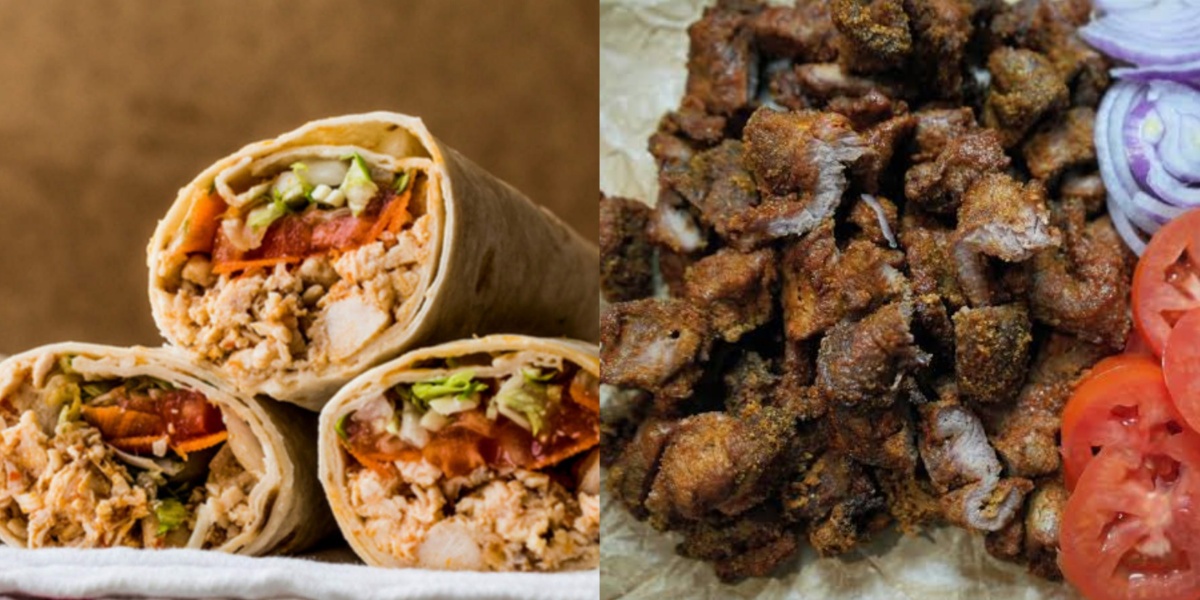Health
What Really Happens to Your Body When You Eat Suya and Shawarma Late at Night, Find Out
For many Nigerians, suya and shawarma are irresistible midnight companions — spicy, smoky, and satisfying…

It’s past 10 p.m., the air smells of grilled meat, and your stomach whispers, “Just one more suya.” Sound familiar? For many Nigerians, suya and shawarma are irresistible midnight companions — spicy, smoky, and satisfying. But your body might not share your excitement. Here’s what really happens when you feast at night.
The irresistible late-night craving
We all know the scene — you’re driving home, tired after work, and that aroma from the roadside suya stand hits you. Or maybe you’re chilling with friends, and someone says, “Let’s grab shawarma.” One bite turns into a ritual.
While there’s nothing wrong with enjoying these foods occasionally, making them your nighttime tradition can quietly harm your health. According to Punch Health, regular consumption of high-fat fast foods like shawarma can increase the risk of liver strain and digestive disorders.

What really happens in your body at night
When you eat late — especially greasy foods — your body is already preparing to rest. Digestion slows down, metabolism decreases, and your stomach can’t process food as efficiently. That means the fat, oil, and spices in shawarma or suya take longer to break down.
DON’T MISS: Telemedicine: The Tech You’re Ignoring That Could Save Your Life
Here’s what it leads to:
- Indigestion and heartburn. Lying down after eating allows stomach acid to move upward, causing that burning sensation.
- Poor sleep quality. Your body works overtime digesting instead of resting.
- Fat buildup. Late-night calories are stored more easily as fat since your energy use drops at night.
- Blood sugar spikes. Heavy sauces and white bread in shawarma cause sudden glucose rises that can affect long-term metabolic health.
What’s in your suya or shawarma?
Suya, made from spicy roasted meat, is often loaded with saturated fats. Shawarma usually includes processed meat, mayonnaise, and refined carbs — a combination that’s delicious but dangerous when eaten too often. Add late-night timing to the mix, and you’ve got a digestive struggle your system doesn’t deserve.
Even street preparation can be a risk factor. Many roadside vendors reuse oil or handle meat without strict hygiene — introducing bacteria and trans fats.

Why timing matters more than taste
Eating a heavy meal right before bed forces your stomach to stay active when the rest of your body wants to slow down. You may wake up bloated, sluggish, or even nauseous.
Experts recommend finishing your last heavy meal at least 2–3 hours before sleep. That gives your digestive system time to process and rest.
Smarter ways to enjoy your favourite street foods
You don’t have to give up suya and shawarma forever — just eat smarter.
- Eat them earlier. Try enjoying them in the evening, not right before bed.
- Balance your meal. Pair suya with cucumber, cabbage, or fresh tomatoes to add fibre and reduce fat impact.
- Choose lighter options. Go for grilled chicken shawarma with less mayo or oil.
- Drink water instead of soda. It helps digestion and reduces calorie load.
- Keep it occasional. Once or twice a week won’t hurt; nightly indulgence will.
In Nigeria’s fast-paced cities, late-night street food has become a culture — from Lagos to Abuja. But culture shouldn’t come at the cost of wellness. Over time, constant late-night eating can lead to obesity, high cholesterol, and even fatty liver.
Your health thrives on timing as much as on taste. When you respect both, you can enjoy your favourite foods guilt-free.
Suya and shawarma are gifts of flavour — but like every gift, they’re best enjoyed in moderation. Your body needs rest at night, not a spicy overload. So next time that suya smoke calls your name after 10 p.m., smile, wave, and say: “Tomorrow evening, my friend.” Your stomach will thank you.























